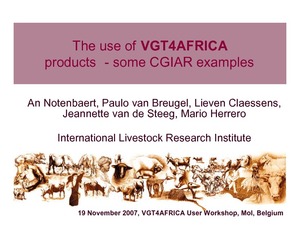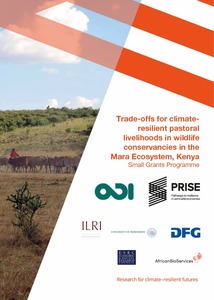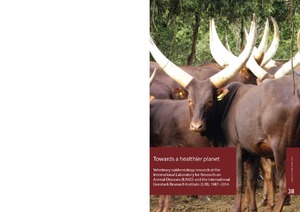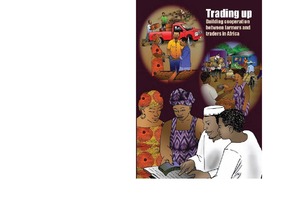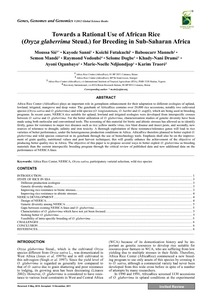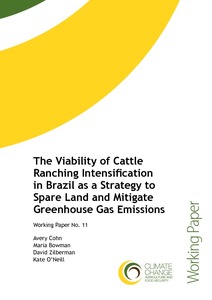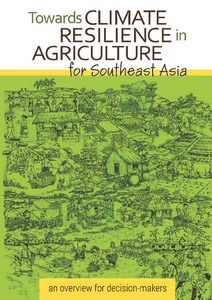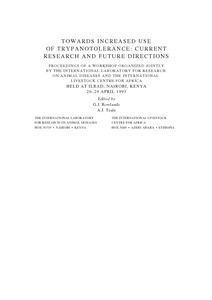Tierras de pastos
AGROVOC URI:
Trade-offs for climate-resilient pastoral livelihoods in wildlife conservancies in the Mara Ecosystem, Kenya: Small Grants Programme
The value of data
Trading up: Building cooperation between farmers and traders in Africa
Written and coordinated through a ‘writeshop’ approach, this book stands up for traders – who are often treated with mistrust by smallholder farmers. It aims to improve the relationship between producers and traders, thus contributing to more sustainable value chains that provide access to markets for local producers in Africa. Full of short stories that are unique and rich in information, Trading up’s 15 richly illustrated case studies cover a wide range of countries and commodities.
The viability of cattle ranching intensification in Brazil as a strategy to spare land and mitigate greenhouse gas emissions
Traditional cow and camel milk production and marketing in agropastoral and mixed crop-livestock systems: the case of Mieso District, Oromia Regional State, Ethiopia
This study was conducted to characterize the traditional milk production and marketing system, and to identify constraints and opportunities for further development. It was conducted in Mieso District of Oromia Regional State, located 300 km east of Addis Ababa and at about 200 km east of Adama. Five rural kebeles, Dire Kalu, Gena, Huse Mendera, Hunde Misoma and Welda Jejeba, that have milk production potential were selected. Farmers/agro-pastoralists from each rural kebele were also selected.
Towards climate resilience in agriculture for Southeast Asia: an overview for decision-makers.
This sourcebook, and accompanying poster learning series, is aimed at policy makers, planners in government, local research administrators, civil society partners and researchers in Southeast Asia. Compiled and repackaged by Dr. Julian Gonsalves and a resource team, the Climate-Smart Agriculture (CSA) source book draws from a rich pool of literature from over 700 sources. The compilation provides succinct, relevant and timely information about climate challenges, and potential solutions from previously published work in a simplified or a shortened form from around the world.
The vulnerability of native rangeland plant species to global climate change in the West Asia and North African regions
This study aimed to evaluate the impact of climate change on the geographical distribution of selected native species from two areas from West Asia and North Africa. Three species representing two genera were selected for assessment of their vulnerability to climate change. The first species was Salsola vermiculata L. which is common to both study areas. The second genus was represented by two species, Haloxylon salicornicum (Moq.) Bunge from the Syrian rangelands and H. schmittianum Pomel from southern Tunisia.
The Tribe - Platform of participatory local development and management of communal rangeland resources
Sustainable development of pastoral and agro-pastoral systems, dominated by collective and/or tribal ownership of rangelands, is a key issue for the West Asia and North Africa region. These two systems are located in arid and semi-arid areas and are increasingly threatened by desertification process. The policy responses to tackle this complexity have been a sectorial and fragmented, “top-down” approach, putting forward technical solutions and neglecting the social context.
Towards increased use of trypanotolerance: Current research and future directions. Proceedings of a workshop
This workshop was conceived in recognition of the fact that, over the years, a great deal of research has been conducted on trypanotolerance. With the advent of new and powerful means to identify markers and genes controlling traits of interest, and with the developments in animal breeding bringing greater speed in dissemination of desirable genotypes, there is increasing interest in trypanotolerance as a way forward in trypanosomiasis control.

